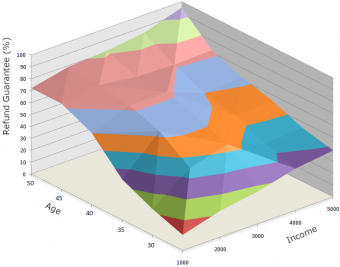Neuronal Networks
Objective/Purpose of Neuronal Networks
The importance of self-learning systems in various scientific disciplines is on the rise thanks to the availability of increasing computing power.
- In the fields of market research and database management, the basic underlying methods are particularly useful for the following applications:
- Segmentation of target groups (as an alternative or as a supplement to cluster analysis)
- The determination of a projective value based on available attribute data (as with regression or discriminant analysis)
With regard to the first of these applications, a check must be performed to determine whether the classic cluster analysis or neuronal networks produce more stable and usable results.
With regard to the second application, neuronal networks possess a great advantage in that they can also recognize non-linear relationships without being supplied with predefined formulas.
Prerequisites
The data may be in any form. There should be enough cases (at least 400) that the sample can be divided into an analysis sample and a validation sample.
Neuronal networks provide patterns, not formulas. Unlike regression analysis, they cannot be used to find relationships that can be used to produce global recommendations for action. Their benefit is the ability to make concrete statements about individual cases.



